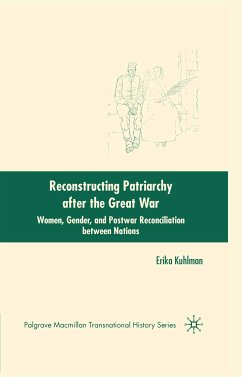
Colonialism in Greenland (eBook, PDF)
Tradition, Governance and Legacy
Versandkostenfrei!
Sofort per Download lieferbar
80,95 €
inkl. MwSt.
Weitere Ausgaben:

PAYBACK Punkte
40 °P sammeln!
Contributes to the on-going debate on the nature of the Danish colonization of Greenland in the eighteenth and nineteenth centuries
Investigates the practices of colonial governance and their impact on the formation, negotiation and contestation of identity in the present and the past
Provides important nuances to the understanding of the historical relationship between Denmark and Greenland
Dieser Download kann aus rechtlichen Gründen nur mit Rechnungsadresse in A, B, BG, CY, CZ, D, DK, EW, E, FIN, F, GR, HR, H, IRL, I, LT, L, LR, M, NL, PL, P, R, S, SLO, SK ausgeliefert werden.












